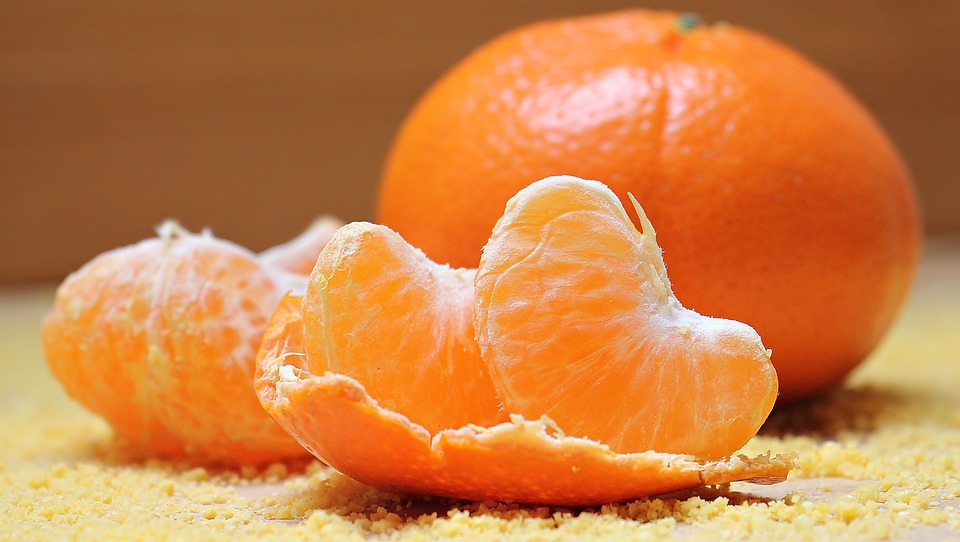Introduction
When it comes to weight loss surgery, the gastric sleeve procedure has gained popularity due to its effectiveness in helping patients achieve significant weight loss. However, it is important to note that following the surgery, patients need to adopt a specific diet to ensure their long-term success and overall health. In this article, we will discuss the best diet for gastric sleeve patients, with a focus on five key subheadings: pre-surgery diet, post-surgery diet stages, recommended foods, portion control, and long-term dietary guidelines.
Pre-Surgery Diet
Before undergoing the gastric sleeve surgery, patients are usually required to follow a pre-surgery diet. The purpose of this diet is to reduce the size of the liver, making the surgery safer and more manageable for the surgeon. The pre-surgery diet typically consists of low-calorie, high-protein foods such as lean meats, fish, eggs, and non-starchy vegetables. It is important to avoid high-sugar and high-fat foods during this period to aid in weight loss and prepare the body for the surgery.
Post-Surgery Diet Stages
After the gastric sleeve surgery, patients go through different stages of a post-surgery diet. These stages gradually introduce solid foods back into the patient’s diet, allowing the stomach to adjust to its reduced size. The stages include a clear liquid diet, a full liquid diet, pureed foods, soft foods, and finally, solid foods. Each stage has specific guidelines regarding the types of foods allowed and the portion sizes. It is essential to follow these stages diligently to avoid complications and promote healing.
Recommended Foods
Following the gastric sleeve surgery, patients should focus on consuming nutrient-dense foods that provide essential vitamins and minerals while being easy to digest. Some recommended foods include lean proteins such as chicken, turkey, fish, and tofu. Non-starchy vegetables like broccoli, spinach, and cauliflower are also encouraged. Whole grains, low-fat dairy products, and healthy fats from sources like avocados and nuts should be incorporated into the diet. It is important to prioritize protein intake to aid in the healing process and prevent muscle loss.
Portion Control
One of the key aspects of the best diet for gastric sleeve patients is portion control. After the surgery, the stomach can only hold a small amount of food, so it is crucial to eat small, frequent meals throughout the day. Using smaller plates and bowls can help visually control portion sizes. It is also important to eat slowly and listen to the body’s signals of fullness to avoid overeating. Incorporating mindfulness techniques during meals can also aid in portion control and prevent discomfort.
Long-term Dietary Guidelines
Maintaining a healthy diet is crucial for long-term success after gastric sleeve surgery. Patients should focus on consuming a balanced diet that includes a variety of nutrient-dense foods. It is important to limit the intake of processed foods, sugary beverages, and high-fat foods to prevent weight regain and maintain overall health. Regular exercise, hydration, and vitamin supplementation as recommended by healthcare professionals are also essential for long-term success.
In conclusion, the best diet for gastric sleeve patients involves following a specific pre-surgery diet, adhering to different stages of a post-surgery diet, consuming recommended foods, practicing portion control, and following long-term dietary guidelines. It is important for patients to work closely with their healthcare team and registered dietitians to create a personalized diet plan that meets their individual needs. By adopting a healthy and balanced diet, gastric sleeve patients can achieve their weight loss goals and maintain a healthy lifestyle in the long run.
Frequently Raised Concerns About Best Diet For Gastric Sleeve Patients
What is the best diet for gastric sleeve patients?
The best diet for gastric sleeve patients is one that promotes weight loss, provides adequate nutrition, and minimizes potential complications. The following guidelines can help patients maintain a healthy diet after undergoing gastric sleeve surgery:
1.
What should I eat after gastric sleeve surgery?
After gastric sleeve surgery, it is crucial to consume a balanced diet that includes a variety of nutrient-rich foods. Here are some key points to keep in mind:
– Focus on consuming lean sources of protein, such as poultry, fish, tofu, and legumes. Protein is essential for wound healing, muscle repair, and weight loss maintenance.
– Incorporate a wide range of fruits and vegetables into your diet to ensure an adequate intake of vitamins, minerals, and fiber.
– Choose whole grains over refined grains to provide sustained energy and promote bowel regularity.
– Stay hydrated by drinking plenty of water throughout the day, as dehydration can lead to various complications.
– Avoid sugary foods and beverages, as they can cause dumping syndrome and hinder weight loss efforts.
The three most important pieces of information regarding post-gastric sleeve diet are:
1. Prioritize lean sources of protein for wound healing, muscle repair, and weight loss maintenance.
2. Include a variety of fruits and vegetables for essential nutrients and fiber.
3. Opt for whole grains and stay hydrated to promote sustained energy and bowel regularity.
2.
How should I eat after gastric sleeve surgery?
Eating habits play a crucial role in the success of gastric sleeve surgery. Adhering to the following eating strategies can help patients achieve favorable outcomes:
– Eat small, frequent meals throughout the day instead of consuming large meals. This helps prevent overeating and promotes better digestion.
– Chew food thoroughly and eat slowly to aid in digestion and minimize the risk of discomfort or complications.
– Stop eating when you feel full, as overeating can lead to discomfort, nausea, and potential stretching of the stomach.
– Avoid drinking fluids while eating, as it can fill up the stomach too quickly and reduce the amount of solid food consumed.
The three most important pieces of information regarding eating habits after gastric sleeve surgery are:
1. Consume small, frequent meals to prevent overeating and aid in digestion.
2. Chew food thoroughly and eat slowly to minimize the risk of discomfort or complications.
3. Avoid drinking fluids while eating to ensure adequate solid food consumption.
3.
What foods should I avoid after gastric sleeve surgery?
Certain foods can pose challenges or complications for gastric sleeve patients. It is important to avoid the following:
– High-calorie, low-nutrient foods such as sugary snacks, fried foods, and processed foods. These can hinder weight loss efforts and provide minimal nutritional value.
– Carbonated beverages, as they can cause discomfort, gas, and stretching of the stomach.
– Tough or fibrous meats, as they can be difficult to digest and may cause discomfort or blockages.
– Foods high in fats or oils, as they can lead to diarrhea and gastrointestinal upset.
The three most important pieces of information regarding foods to avoid after gastric sleeve surgery are:
1. Avoid high-calorie, low-nutrient foods to support weight loss and adequate nutrition.
2. Steer clear of carbonated beverages to prevent discomfort and stomach stretching.
3. Limit consumption of tough meats and high-fat foods to minimize digestive issues.
4.
How can I prevent nutritional deficiencies after gastric sleeve surgery?
Gastric sleeve surgery can reduce the body’s ability to absorb certain nutrients, making it crucial to pay attention to potential deficiencies. Here are some strategies to prevent nutritional deficiencies:
– Take prescribed vitamin and mineral supplements as recommended by your healthcare provider. These may include iron, calcium, vitamin B12, and others.
– Follow a well-balanced diet that includes a variety of nutrient-dense foods.
– Regularly monitor your nutrient levels through blood tests and consult with a registered dietitian to ensure you are meeting your nutritional needs.
– Consider incorporating protein shakes or supplements to meet daily protein requirements if necessary.
The three most important pieces of information regarding preventing nutritional deficiencies after gastric sleeve surgery are:
1. Adhere to prescribed vitamin and mineral supplements to compensate for reduced nutrient absorption.
2. Maintain a well-balanced diet with nutrient-dense foods to support adequate nutrition.
3. Regularly monitor nutrient levels and seek guidance from a registered dietitian.
5.
How can I maintain long-term weight loss after gastric sleeve surgery?
Gastric sleeve surgery is a valuable tool for weight loss, but long-term success requires ongoing commitment. Consider the following strategies to maintain weight loss:
– Adopt healthy lifestyle habits, including regular exercise and stress management techniques.
– Attend follow-up appointments with your healthcare provider to monitor progress and address any concerns.
– Build a support system that includes family, friends, or support groups to help you stay motivated and accountable.
– Practice mindful eating, paying attention to hunger and fullness cues, and avoiding emotional eating.
The three most important pieces of information regarding maintaining long-term weight loss after gastric sleeve surgery are:
1. Embrace healthy lifestyle habits including regular exercise and stress management.
2. Attend follow-up appointments to monitor progress and address concerns.
3. Establish a support system and practice mindful eating for sustained motivation and successful weight maintenance.
Common False Assumptions Regarding Best Diet For Gastric Sleeve Patients
1. The Misconception that the best diet for gastric sleeve patients is a one-size-fits-all approach
Despite what some may believe, there is no universal best diet for gastric sleeve patients. Each individual’s dietary needs and preferences vary, and it is crucial to tailor the diet to the specific needs of the patient. Following a one-size-fits-all approach may not provide the necessary nutrients or address the unique challenges faced by each patient after gastric sleeve surgery.
2. The misconception that gastric sleeve patients can eat unlimited amounts of food
A common misconception is that gastric sleeve patients can consume unlimited amounts of food without consequences. While gastric sleeve surgery reduces the size of the stomach, it does not eliminate the need for portion control. Overeating can stretch the stomach pouch and undermine the effectiveness of the surgery. It is essential for patients to adhere to portion control guidelines provided by their healthcare professionals to ensure successful weight loss and to avoid complications.
3. The misconception that gastric sleeve patients must follow a strict liquid-only diet
Contrary to popular belief, gastric sleeve patients are not required to follow a strict liquid-only diet for the rest of their lives. While a liquid diet may be necessary immediately after surgery to allow the stomach to heal, it is gradually transitioned to a soft and then solid food diet. The key is to introduce foods gradually, starting with pureed and soft foods and progressing to a well-balanced diet consisting of lean proteins, vegetables, fruits, and whole grains.
4. The misconception that gastric sleeve patients need to avoid fats completely
It is a misconception that gastric sleeve patients need to eliminate fats entirely from their diet. While it is true that high-fat foods can cause discomfort and may be poorly tolerated by some patients, healthy fats are an essential part of a balanced diet. Healthy fats, such as those found in avocados, nuts, seeds, and olive oil, provide important nutrients and can help promote satiety. Moderation and choosing healthier fat sources are key for gastric sleeve patients.
5. The misconception that gastric sleeve patients can rely solely on supplements
Some individuals believe that gastric sleeve patients can rely solely on supplements to meet their nutritional needs. While supplements can be beneficial in ensuring adequate nutrient intake, they should not replace a well-rounded diet. Whole foods provide a wide range of essential nutrients, including vitamins, minerals, and fiber, that supplements alone cannot replicate. It is crucial for gastric sleeve patients to prioritize a nutrient-dense diet and work with a registered dietitian to develop a well-balanced meal plan.
Best Diet For Gastric Sleeve Patients
#diet #gastric #sleeve #patients #promotes #weight #loss #essential #nutrients #supports #healing #process #surgery #general #outline #diet #stages #typically #recommended #gastric #sleeve #patients

